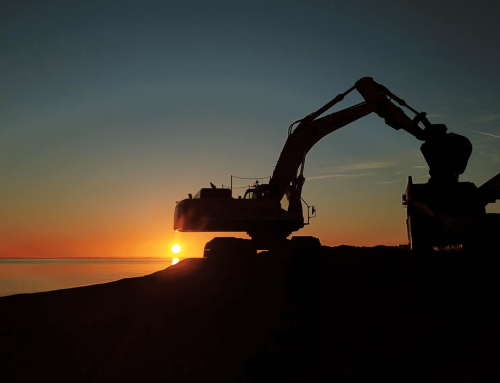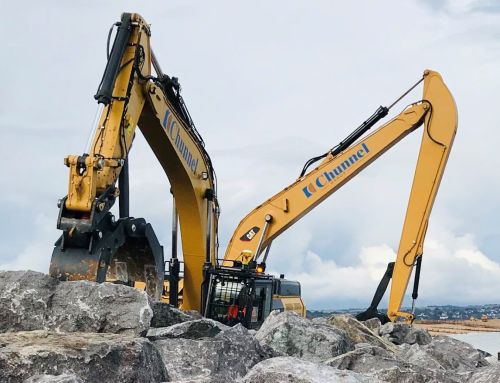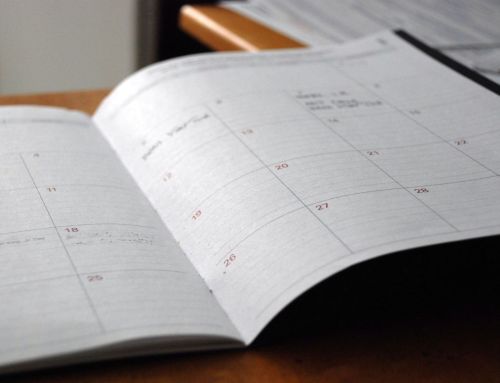When it comes to plant machinery, safety is everything. Whether you are operating an excavator, telehandler or dumper, getting it wrong can put people, equipment and your entire project at risk. At Chunnel Group, we have spent over fifty years supporting safe plant hire across the UK, and we know that simple steps taken at the right time can make all the difference.
This guide walks you through the key stages of safe plant equipment operation on site, helping you protect your team and keep things running smoothly.
1. Prepare the Site Properly
Before any machinery arrives, make sure your site is ready. Good preparation keeps people safe and prevents accidents later on.
Start by checking site access routes. Are the roads and paths wide enough for delivery vehicles? Have you removed any obstacles or overhead hazards? Make sure ground conditions are firm and stable, especially where machines will travel or lift.
Set up clear walkways for pedestrians, and keep plant routes separate where possible. Signage, barriers and banksmen can all help to keep people and machinery apart. If you are working near public areas, make sure fencing and protection are in place.
Good site preparation sets the tone for safe operation throughout the project.
2. Use Qualified Operators Only
Plant machinery should always be operated by trained, competent people. This is not just best practice, it is a legal requirement.
Operators should hold the right CPCS or NPORS cards for the machines they are using. Their qualifications must be in date and relevant to the equipment on site. Always check these before starting work.
Even experienced operators need proper site inductions, so they understand local rules, traffic management plans, emergency procedures and any site-specific hazards.
At Chunnel Group, we can supply fully qualified operators as part of our plant hire service, giving you one less thing to worry about.
3. Carry Out Daily Safety Checks
Before switching on any machine, operators should carry out a daily walkaround check. This only takes a few minutes but is essential for spotting early signs of wear, damage or faults.
Key things to check include:
- Tyres or tracks for damage or wear
- Fluid levels such as oil, fuel and hydraulic fluid
- Lights, alarms and safety systems
- Any visible leaks or loose parts
- Attachments or lifting equipment for signs of strain or cracks
Operators should report any issues straight away, and never use machinery that is not in safe working order.
At Chunnel Group, we thoroughly inspect all plant before delivery, but daily checks are still important to keep everything running safely on site.
4. Plan the Task Carefully
Every job involving plant machinery should have a clear plan. This includes knowing exactly what the machine will be doing, how long it will be used, and how people will stay safe around it.
If lifting is involved, make sure you have the correct lifting plans, permits and supervision in place. Check the ground bearing capacity is suitable for the load.
Traffic management plans should show plant routes, exclusion zones, and pedestrian crossings. Everyone on site should know how to read and follow these.
When tasks are properly planned, things flow more smoothly and risks are kept under control.
5. Always Use Machinery as Intended
Plant machinery must only be used for its intended purpose. For example, dumpers are for carrying loads, not for lifting people, and excavators should never be used to pull or drag objects.
Operators should follow manufacturer instructions, including safe working limits and attachment guidelines. Overloading machines, using them on unsafe ground or misusing controls can quickly lead to accidents.
If the task changes, stop and re-assess. It is better to pause and plan properly than to push on and risk injury or damage.
6. Keep the Work Area Clear
Plant machinery needs space to operate safely. Always keep the area around machines free from obstructions, loose materials and unnecessary foot traffic.
Where possible, set up exclusion zones around operating plant, using barriers, cones or tape to keep people at a safe distance. Banksmen can help guide machines and protect pedestrians.
Always make sure visibility is good, especially when reversing. Many modern machines from Chunnel Group come with reversing alarms and cameras, but blind spots can still exist, so operators and banksmen need to stay alert.
7. Communicate Clearly
Good communication is key to keeping sites safe. This includes using hand signals, two-way radios or agreed instructions between operators, banksmen and ground workers.
When lifting or moving heavy loads, clear signals help avoid misunderstandings and prevent accidents. Operators should always stop if they lose sight of the banksman or do not understand an instruction.
Toolbox talks at the start of each shift can be useful for sharing updates, reinforcing safety messages and planning daily activities. Keeping the whole team on the same page helps everyone work together safely.
8. Shut Down Equipment Safely
At the end of each shift, or when machinery is not in use, it should always be shut down properly.
Operators should:
- Park machines on level ground where possible
- Lower all attachments to the ground
- Apply handbrakes and switch off the engine
- Remove keys and secure the cab
- Report any issues for maintenance
Leaving machinery in a safe, secure state reduces the risk of theft, tampering or accidental movement. It also keeps the site tidy and safer for others.
9. Report Faults Immediately
If anything goes wrong, or if operators notice signs of wear, strange noises or performance issues, it is essential to stop using the machine and report the problem straight away.
Using faulty equipment can lead to serious accidents, so never try to “get by” or patch it up on site. At Chunnel Group, we offer fast response times to sort out any issues quickly, whether that means sending a technician or replacing the machine.
Clear reporting helps prevent small issues turning into bigger problems and keeps the site safe for everyone.
10. Keep Records Up to Date
Finally, make sure your paperwork is in order. This includes:
- Operator qualifications and training records
- Daily inspection checklists
- Lifting plans and permits
- Maintenance and servicing records
- Accident and near-miss reports
Having this information to hand shows that you are managing plant safely and complying with legal requirements. It also helps you track issues and spot patterns that might need attention.
When you hire from Chunnel Group, we provide full inspection certificates and maintenance logs with every machine, so you have everything you need from day one.
Safe Plant Operation Starts with Good Habits
Safe plant operation is not about ticking boxes – it is about creating the right habits on site. With good preparation, trained operators, regular checks and clear communication, you can massively reduce risks and keep your project on track.
At Chunnel Group, we are proud to supply reliable, fully serviced plant equipment with safety at the heart of everything we do. Whether you need short-term hire, operated machines, or expert advice, our friendly team is here to help.



